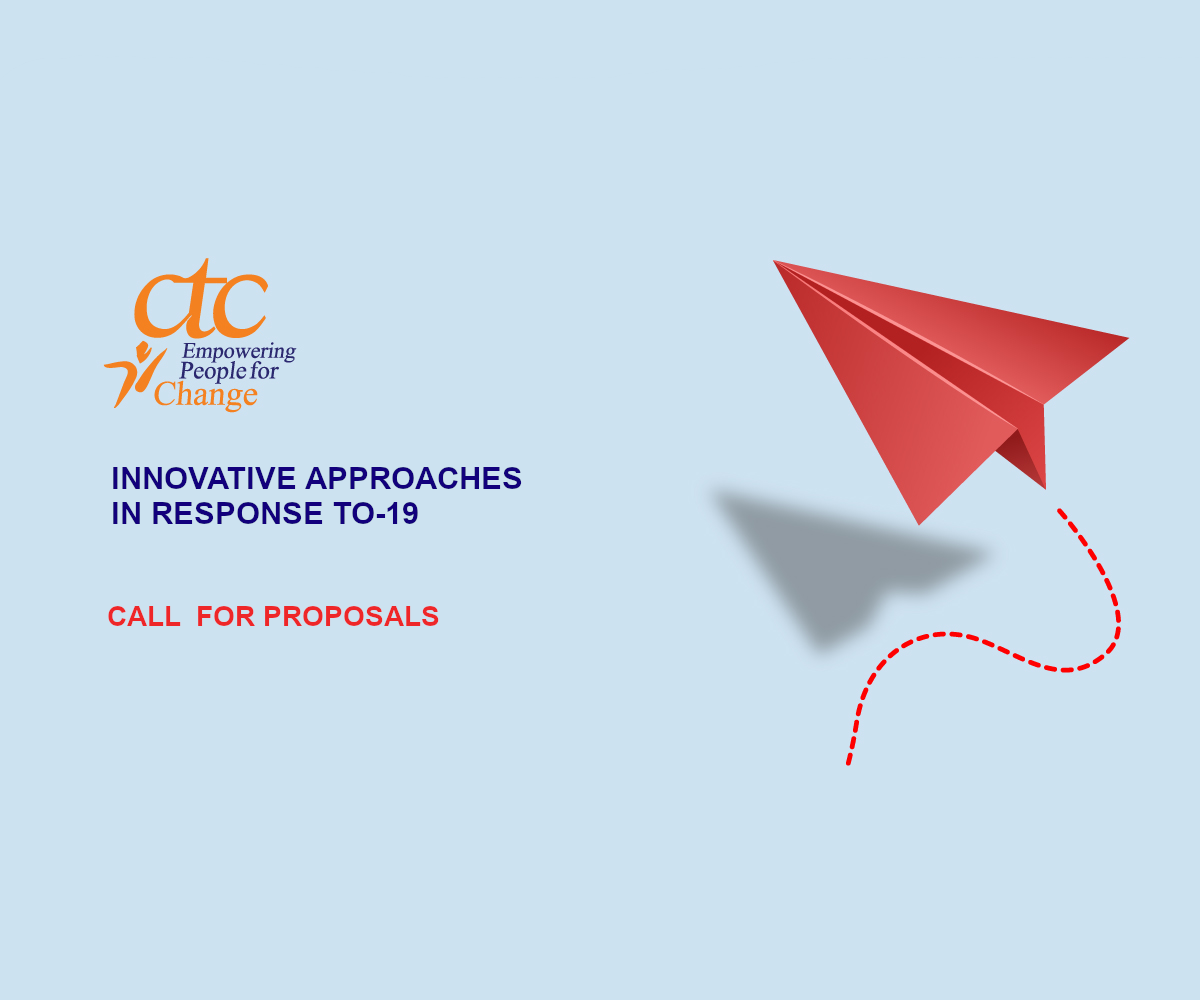
The COVID-19 (coronavirus) pandemic has changed the world dramatically. The velocity and magnitude of the socio-economic destruction that has followed seem unprecedented.
There is no doubt that Georgia has been taking commendable mitigation measures in preventing the spread of the outbreak. However, the middle-income nation is scrambling to fight the devastating multifaceted impacts of the pandemic felt across sectors, leaving the most vulnerable in dire conditions and putting their fundamental economic and social human rights at stake. In this situation it is important that decision-makers, service provides, civil society actors and individuals, mainly in the fields of health, care and social rights have coordinated and coherent actions and response. Recognizing this pressing issue and its grave repercussions, the Center for Training and Consultancy (CTC), believes that civil society has the potential to play an important role in harmonizing collective mechanism across sectors in combating the pandemic. Considering its scale and severity, CTC wants to capitalize on the existing resources, particularly those relevant to safeguarding human rights and social care through an empowerment approach, towards combating the outbreak.
The call is aiming to identify and support impact innovations that improve and/or expand access to social services for elderly, children from disadvantaged families and unemployed youth, affected by the COVID-19 crises. Within its response scheme, CTC suggests putting the priority on introduction and development of social innovation-driven care services which have the potential to develop into recurring or sustained business models and generate longstanding social impact. Apart from digital solutions, which may not be accessible to the majority of the most vulnerable, more contextual, simplistic and realistic service delivery interventions have to be created. Some successful examples include: mobilizing volunteer networks to support the elderly; tapping into skills of returned migrant workers and using them for COVID-19 response; production of supplementary learning opportunities for disadvantaged groups, development of hygiene based programs for poor community schools; career counselling to help assess skills and opportunities of the youth; enhancing social and professional skills of the unemployed young people, and etc. Such interventions will aide in bridging the future inequality gap.
The funding will be provided through an open call competition organized in two stages. The first stage requires submission of project concepts, which will be thoroughly screened for strategic relevance to the program, innovation and level of feasibility. The best concepts will be shortlisted for the follow up stage, where applicants will be requested to elaborate their concepts into a full proposal in accordance to standard guidelines. At least 3 projects are expected to be supported,The budget ceiling for each project will not exceed 85,000 Georgian Lari (up to 27,000 Euros), including up to 5-7% co-funding. Only registered CSOs will be eligible to apply despite their period of registration and functioning, with priority given to youth-led organizations.
The proposed ideas and solutions should:
- Be relevant to the current and persistent needs of the target group.
- Integrate innovation
- Be oriented at clear and specific outcomes and impact, and at the same time have a coherent plan of action and working model.
- Attract interest from key stakeholders (policy makers, partners ) to enact it
- Have potential for scale-up and project teams should be willing to do this
- Be driven by competent and result-driven leadership with relevant ethical fibre and capacity to engage with key influencers as necessary.
- Consider and promote gender equality and take actions towards realizing it within the funding period.
References:
Agenda.ge. (2020, March 12). What impact will coronavirus have on the Georgian economy? Agenda.Ge. Retrieved from https://agenda.ge
Bowater, D. (2020, March 23). Opinion: How to advocate effectively in the age of COVID-19. Retrieved May 17, 2020, from https://www.devex.com/news/opinion-how-to-advocate-effectively-in-the-age-of-covid-19-96812
Cornish, L. (2020, April 14). What are the opportunities COVID-19 creates for the humanitarian sector? Retrieved May 15, 2020, from https://www.devex.com/news/what-are-the-opportunities-covid-19-creates-for-the-humanitarian-sector-96960
De Cao, Sandner, E., M. (n.d.). The potential impact of the COVID-19 on child abuse and neglect. Retrieved May 17, 2020, from https://voxeu.org/article/potential-impact-covid-19-child-abuse-and-neglect
Gopinath, G. (2020, April 14). The Great Lockdown: Worst Economic Downturn Since the Great Depression. Retrieved May 17, 2020, from https://blogs.imf.org/2020/04/14/the-great-lockdown-worst-economic-downturn-since-the-great-depression/
Ministry of Economy and Sustainable Development of Georgia. (2017). Labour market analysis of Georgia. Retrieved from http://www.lmis.gov.ge/Lmis/Lmis.Portal.Web/Handlers/GetFile.ashx?Type=Content&ID=b0c44289-6d97-44a7-b59a-336ca9b885c7
National Statistics Office of Georgia, United Nations Population Fund (UNFPA) Office in Georgia. (2017). Ageing and Older Persons in Georgia. Retrieved from https://georgia.unfpa.org/sites/default/files/pub-pdf/2.%20Ageing-Engl_Print_F.pdf
Reliefweb. (2020). COVID-19: How to include marginalized and vulnerable people in risk communication and community engagement. Retrieved from https://reliefweb.int/sites/reliefweb.int/files/resources/COVID-19_CommunityEngagement_130320.pdf
UNAIDS. (2020). Rights in the time of COVID-19 Lessons from HIV for an effective, community led response. Retrieved from https://www.unaids.org/sites/default/files/media_asset/human-rights-and-covid-19_en.pdf
United Nations Department of Economic and Social Affairs. (2020, May 8). Protecting and mobilizing youth in COVID-19 responses. Retrieved May 13, 2020, from https://www.un.org/development/desa/youth/news/2020/05/covid-19/
United Nations Human Rights Office of the High Commissioner. (2018). Human Rights and Constitution Making (17/5). Retrieved from https://www.ohchr.org/Documents/Publications/ConstitutionMaking_EN.pdf
World Economic Forum. (2020, May 5). Why social entrepreneurs are critical to COVID-19 recovery. Retrieved May 17, 2020, from https://www.weforum.org/agenda/2020/05/schwab-foundation-covid-response-alliance-social-entrepreneurs-coronavirus-recovery-response/